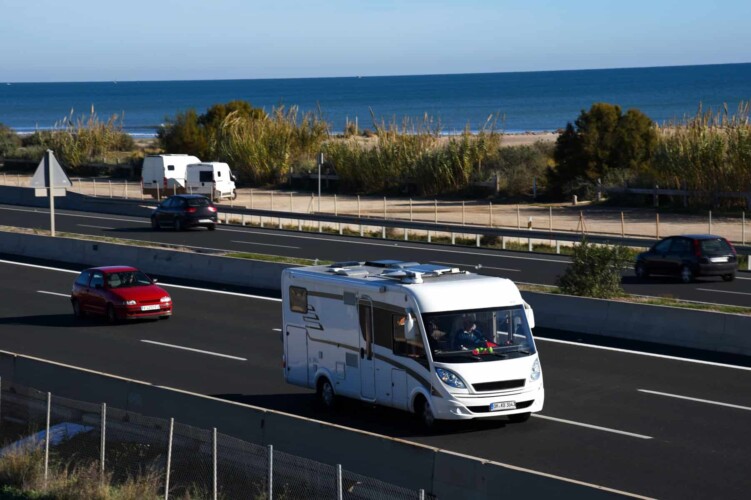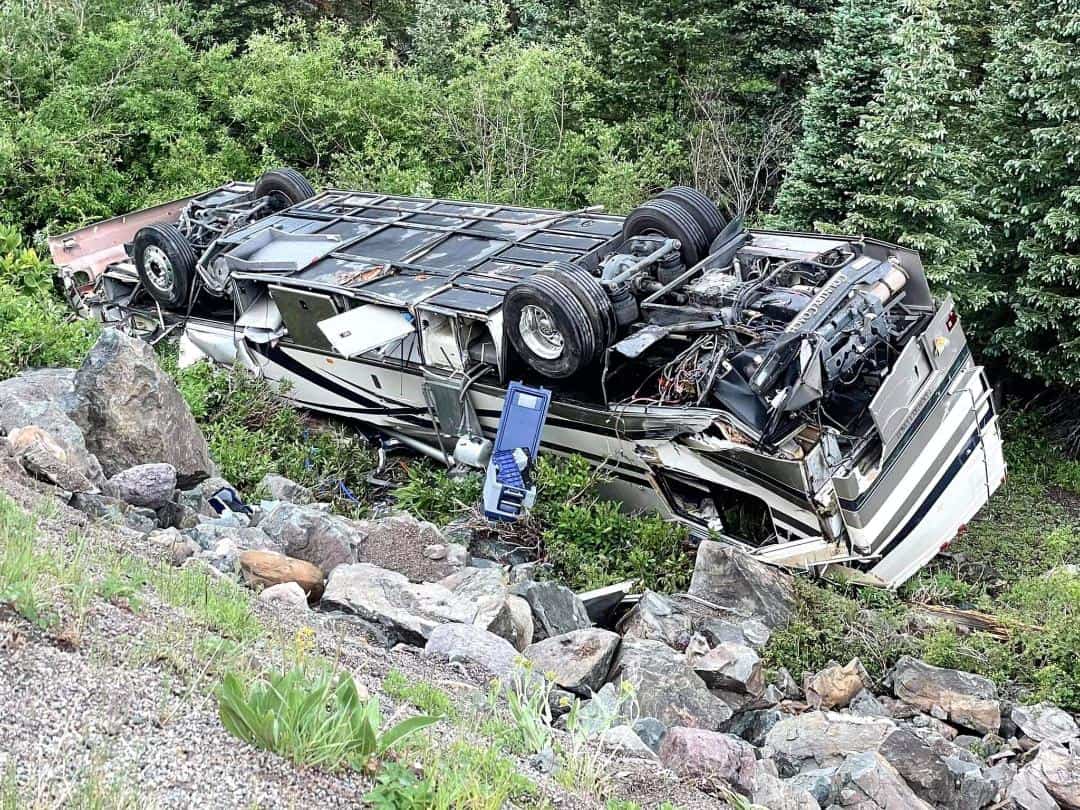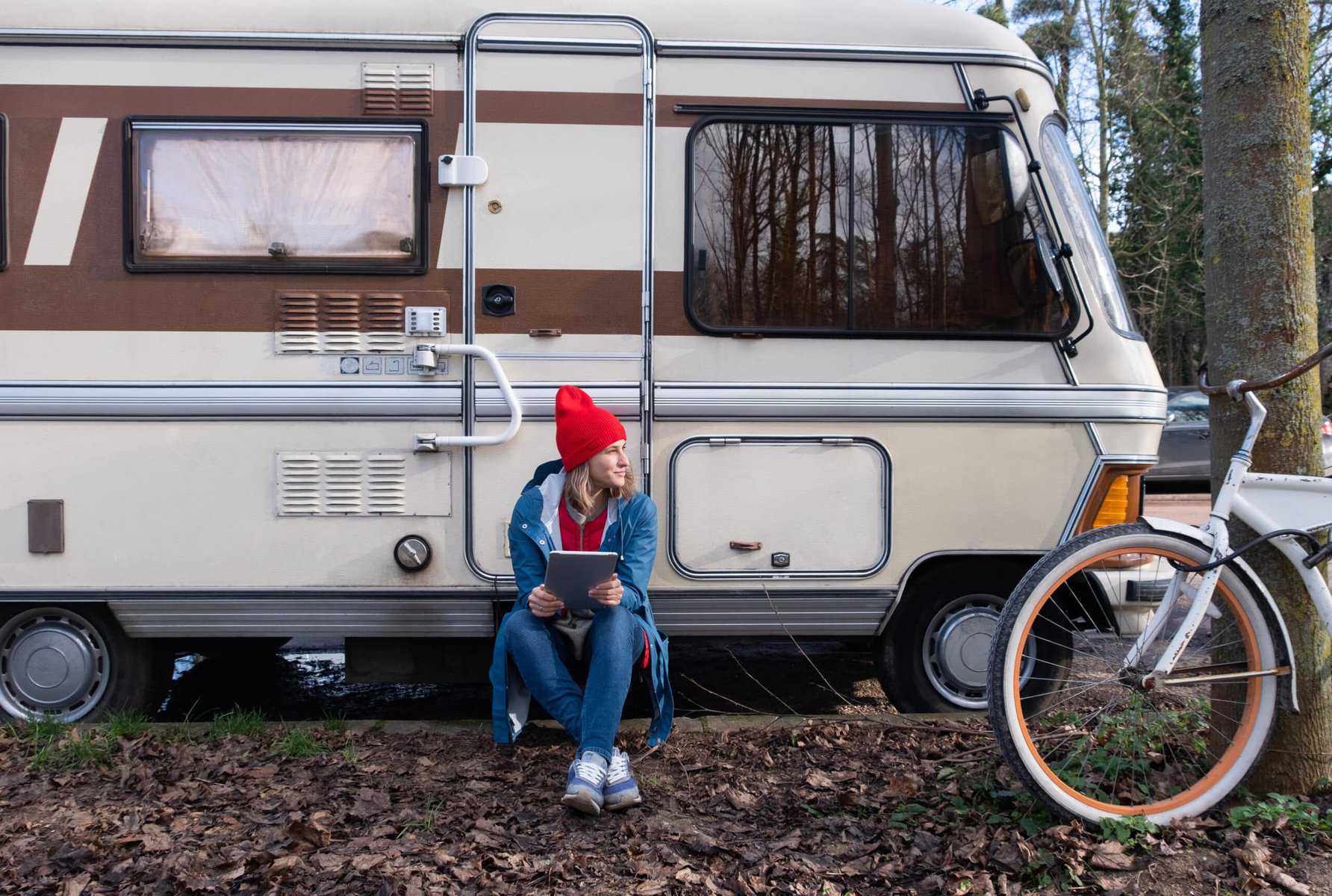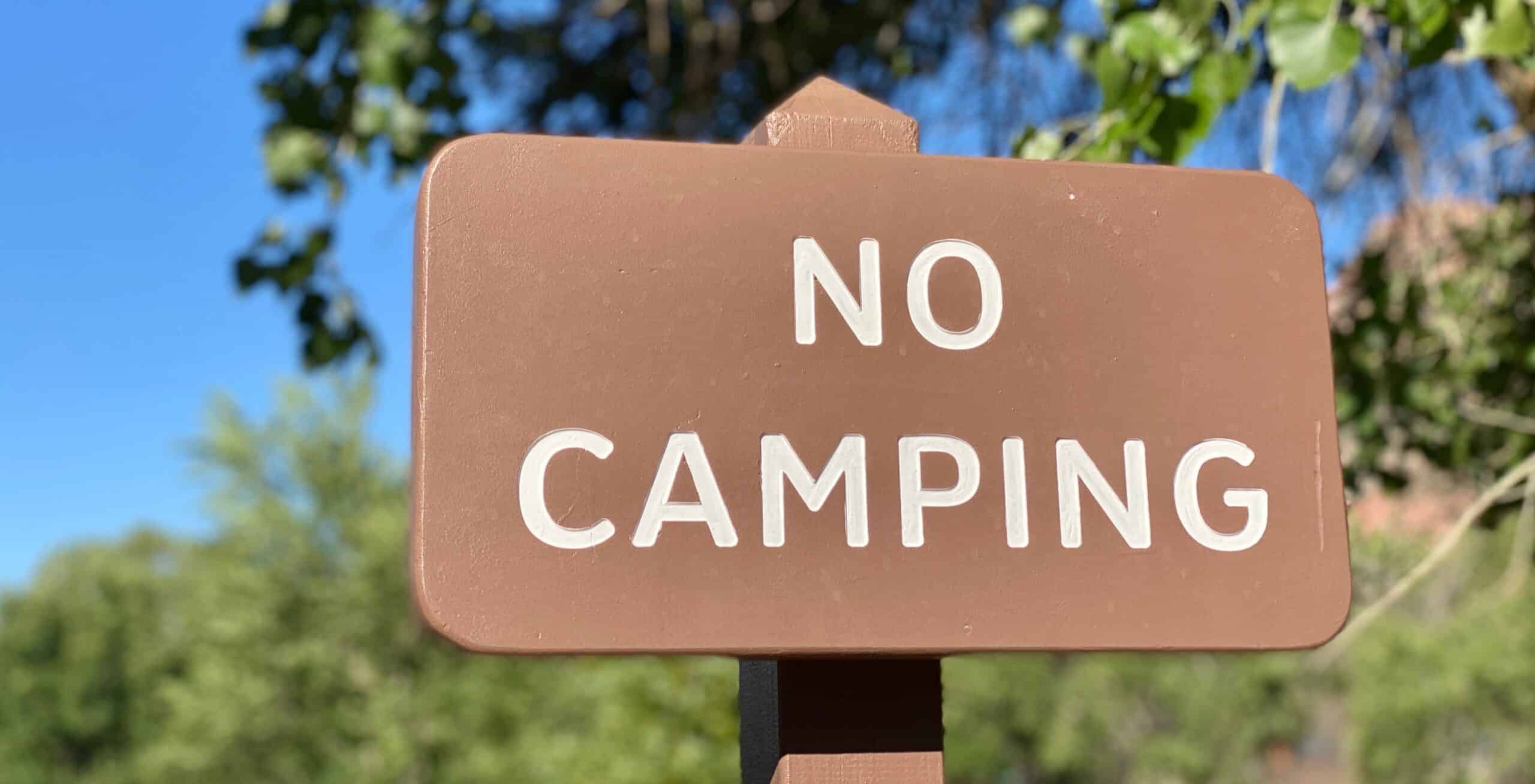Part-time or full-time RV insurance is a super important thing to have. It should be the first thing you buy when purchasing your motorhome or trailer.
The only problem?
You want to ensure you can replace your home-on-wheels if you’re involved in a vehicle accident. Insurance also helps if natural disaster causes serious RV damage.
Knowing which type of part-time or full-time RV insurance policy to buy and who to buy one from can feel overwhelming.
How to Find The Best Part-Time (or Full-Time) RV Insurance Plan
When seeking coverage, the goal is for your new RV investment to be fully covered. You also don’t want to spend a ton of money unnecessarily (especially since the cost of owning an RV can be expensive). Fortunately, there is a way to find a nice balance between the two. When that happens, you can travel happily knowing you’re fully covered, while still keeping some cash to spend on those adventures.
In this article, we help you understand:
- What to look for in a part time or full-time RV insurance policy
- How to ensure you get the best deal possible.
Let’s get started!
First, Know Your RV Usage and Needs
How you use your RV determines the type of policy you need.
- Will you only use your RV on weekends at local campgrounds, or on short vacations? You should be fine with a traditional RV insurance plan.
- Or do you have a dream to full-time RV for six months or more each year? In that case, you have much different needs than a part-time RVer.
Know how you will be using your RV going into the shopping process. This helps you choose the best RV insurance plan for your needs. It also helps to ensure you get enough coverage (without paying the cost of being over insured).
Shop Around for RV Insurance
Don’t be afraid to shop around for RV insurance. Get several different quotes. This is easy enough to do over the internet. When you do get quotes, find out details about what the policy will cover. Also find out if you can add optional coverages you’d like to have if they aren’t already included. Below we cover optional RV insurance coverages.
Remember, price isn’t the only thing you’re looking at. Things like deductibles, coverage amounts, and features matter as well.
Compare Total Loss Replacement Versus Actual Cash Value Coverage
Take a look at both total loss replacement and actual cash value coverage options common to most RV insurance companies.
- Actual cash value coverage replaces your damaged RV, minus depreciation.
- Total loss replacement coverage pays for the total cost of a replacement unit.
You need to choose one type of coverage. You want to be able to replace the rig if something does happen to it. Unfortunately, actual cash value doesn’t always allow you to do that. Therefore, you’re going to be better off paying a bit extra to have total loss replacement in the vast majority of cases.

Ask About Optional RV Insurance Coverages
Every insurance company has a list of options that can be included with their plans. Ask to see these options. From there, carefully consider how you will use the RV.
- What you will carry in your RV?
- Are you towing a car behind the RV?
- Will you add any features onto it (like an RV solar power system?)
Once you know the answers, you can decide which optional RV insurance coverages are worthwhile for you. Some common RV insurance features and add-ons include:
Vacation Liability Coverage
If someone gets hurt on your campsite, or you accidentally damage campground property, this coverage protects you.
Personal Property and Belongings Coverage
A great option for full-time RVers, this covers the things you are carrying in your RV.
Adjacent Structures Coverage
Do you own an RV lot with a permanent shed or other structure? This covers that additional structure.
Medical Payment Coverage
If your RV is involved in an accident, this will cover medical bills that are a result of the accident.
Comprehensive Coverage
This covers things like vandalism, theft, falling objects, fire, and natural disasters.
Uninsured Motorist Coverage
This covers you should your RV be hit by an uninsured motorist. It’s also good to have in case of a hit-and-run accident.
Emergency Expense Coverage
Do you live in your RV? If you have to leave it in the shop, your emergency expense coverage helps pay for alternative lodging.
Roadside Assistance
Roadside assistance covers RV towing, lockouts, and other services you might need when something goes wrong during travel.
Some full-time RVers find they want all of these options included with their full-time RV insurance. Meanwhile, weekenders will require far fewer.

How to Save Money on RV Insurance
Most RV insurance companies offer discounts for a variety of things. Not all of them will be upfront about the discounts available to you. Instead, you might have to ask what discounts are available to see which ones you qualify for.
Look Into “Insurance Bundling”
Often, RVers can save on insurance for the trailer or motorhome by bundling it with their car or home insurance. Ask your current insurance company about this. Or, if you prefer to go with another company, be sure to ask about bundling when getting quotes. You might just save yourself some money!
Request a Discount
Another way to save money? Ask for a discount. Yes, in some cases, it can be that simple. Many companies offer discounts if you have a good driving record. If you are over a certain age, you might save money too. Lots of companies help RVers save money on insurance if customer agree to have their driving habits monitored by GPS tracking.
Why Good RV Records are Important
So you found the right policy for you. Your next step is to make sure you are meticulous about keeping records.
- Take photos of your RV every six months or so.
- Keep receipts of upgrades you’ve made.
- If you have personal property and belongings coverage, keep an updated list of everything in your rig. Save receipts for big purchases.
- Keeping thorough RV maintenance records are important too.
If your rig is in a bad accident or if some other disaster comes up, the insurance adjuster may not be left with much to look at. All of these records help ensure you are reimbursed properly, so they are very important.
With these tips you should be able to find the perfect part-time or full-time RV insurance policy for your needs. Once that’s in place, all that’s left to do is stock the rig. Oh, and of course you need to plan an awesome adventure so you can hit the road!





